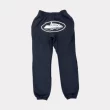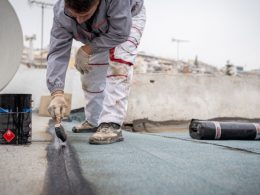The UK fashion industry thrives on quality materials and reliable supply chains. For fashion designers, finding the right wholesale fabric suppliers can make or break a collection. Whether you’re launching your first line or expanding an established brand, partnering with reputable fabric wholesalers ensures consistent quality, competitive pricing, and timely delivery of materials.
Understanding the UK Wholesale Fabric Market
The British wholesale fabric market has evolved significantly over the past decade, adapting to changing consumer demands and sustainability requirements. Today’s suppliers offer everything from traditional British tweeds to cutting-edge technical fabrics, catering to diverse design needs across the fashion spectrum.
Modern wholesale fabric suppliers in the UK have embraced digital platforms while maintaining the personal service that small and medium-sized fashion businesses require. This hybrid approach allows designers to browse extensive catalogs online while still receiving expert advice on fabric selection, minimum order quantities, and seasonal availability.
Essential Qualities of Reliable Fabric Wholesalers
When evaluating potential suppliers, several key factors distinguish exceptional wholesalers from average ones. Quality consistency ranks as the most crucial element, as variations in fabric batches can compromise entire collections. Professional suppliers maintain strict quality control measures and provide detailed specifications for each material.
Competitive pricing structures matter significantly for fashion businesses operating on tight margins. The best wholesalers offer transparent pricing with volume discounts and flexible payment terms. Additionally, reliable suppliers maintain adequate stock levels and communicate proactively about potential delays or supply chain disruptions.
Customer service excellence separates top-tier suppliers from their competitors. This includes knowledgeable staff who understand fabric properties, responsive communication channels, and willingness to work with designers on custom requirements or special orders.
Navigating Minimum Order Quantities
Most wholesale fabric suppliers operate with minimum order quantities (MOQs) that can challenge smaller fashion businesses. Understanding these requirements upfront helps designers plan their collections more effectively and budget accordingly.
Successful fashion designers often develop relationships with multiple suppliers to balance MOQ requirements across different fabric types. Some wholesalers offer more flexible arrangements for established customers or during promotional periods, making it worthwhile to discuss your specific needs during initial conversations.
For emerging designers, considering suppliers like Create Fabrics, which offers reasonable minimum orders alongside competitive pricing, can provide the flexibility needed during the early stages of business development.
Sourcing Sustainable and Eco-Friendly Materials
Sustainability has become a driving force in fashion, with consumers increasingly demanding environmentally responsible products. Forward-thinking wholesale fabric suppliers now offer extensive ranges of organic, recycled, and sustainably produced materials.
These eco-friendly options include organic cotton, bamboo fibers, recycled polyester, and innovative materials made from agricultural waste. While sustainable fabrics may carry premium pricing, they often provide marketing advantages and align with growing consumer values.
Leading suppliers maintain certifications from organizations like GOTS (Global Organic Textile Standard) and OEKO-TEX, providing assurance about their environmental and social responsibility standards. These certifications become increasingly important as fashion brands face scrutiny about their supply chain practices.
Building Strong Supplier Relationships
Long-term success in fashion depends heavily on cultivating strong relationships with fabric suppliers. This involves consistent communication, prompt payment, and mutual respect for business needs and constraints.
Regular communication helps suppliers understand your design aesthetic and seasonal requirements, enabling them to recommend suitable new arrivals or alert you to potential supply issues. Many wholesalers offer priority access to limited-edition fabrics or exclusive colorways to their valued customers.
Payment reliability builds trust and can lead to more favorable terms over time. Suppliers often extend credit facilities or flexible payment schedules to customers with proven track records, providing valuable cash flow advantages during busy production periods.
Seasonal Planning and Fabric Availability
The fashion industry operates on seasonal cycles that require careful planning and coordination with fabric suppliers. Understanding lead times for different materials helps designers place orders appropriately to meet production deadlines.
Spring/summer collections typically require lighter fabrics like cottons, linens, and silk blends, while autumn/winter lines demand woolens, heavier knits, and technical fabrics for outerwear. Suppliers often release seasonal ranges months in advance, allowing designers to plan their collections accordingly.
Some materials have longer lead times due to manufacturing complexity or limited production runs. Premium fabrics, specialty prints, and custom-dyed materials often require advance booking to ensure availability when needed.
Digital Platforms and Online Ordering
Modern wholesale fabric suppliers have embraced digital transformation, offering sophisticated online platforms that streamline the ordering process. These systems typically feature detailed product catalogs with high-resolution images, fabric specifications, and real-time inventory levels.
Online ordering systems allow designers to place orders outside traditional business hours and track shipments in real-time. Many platforms also offer features like fabric sample ordering, repeat order functionality, and integration with inventory management systems.
However, the tactile nature of fabric means that physical samples remain crucial for final decision-making. The best suppliers combine efficient online systems with responsive sample services, allowing designers to experience fabric hand-feel and drape before committing to larger orders.
Cost Management and Budget Planning
Effective cost management requires understanding all factors that influence fabric pricing beyond the base material cost. These include transportation charges, minimum order requirements, payment terms, and potential duty or tax implications for imported materials.
Volume purchasing often provides significant cost advantages, but requires careful cash flow management and storage considerations. Some designers form buying groups or coordinate orders with other businesses to achieve better pricing on shared materials.
Currency fluctuations can impact pricing for imported fabrics, making it important to understand suppliers’ pricing policies and potential hedging options for larger orders. Establishing relationships with UK-based suppliers can provide pricing stability and reduced lead times.
Conclusion
Selecting the right wholesale fabric suppliers forms the foundation of successful fashion design businesses. The UK market offers numerous options, from specialized traditional suppliers to modern operations offering comprehensive digital services and sustainable material options.
Success requires balancing multiple factors including quality, pricing, service levels, and alignment with your brand values. Building strong relationships with reliable suppliers like Create Fabrics, which combines competitive pricing with excellent customer service, provides the stability needed for long-term business growth.
The investment in time and effort to research and develop supplier relationships pays dividends through consistent material quality, reliable delivery schedules, and access to new and innovative materials that can differentiate your collections in the competitive fashion marketplace.
Frequently Asked Questions
- What are typical minimum order quantities for wholesale fabric suppliers in the UK?
Minimum order quantities vary significantly depending on the supplier and fabric type, typically ranging from 10-50 meters for basic fabrics up to 100+ meters for specialized materials. Some suppliers offer lower minimums for new customers or during promotional periods.
- How far in advance should I place fabric orders for seasonal collections?
Most fashion designers place fabric orders 3-6 months before their production schedule begins. This allows time for sample approval, potential re-orders, and accounts for any supply chain delays. Premium or custom fabrics may require even longer lead times.
- Can I request custom colors or prints from wholesale fabric suppliers?
Many wholesale suppliers offer custom dyeing and printing services, though these typically require higher minimum quantities and longer lead times. Custom work usually involves additional costs for setup and sampling before production begins.
- What payment terms do most UK wholesale fabric suppliers offer?
Payment terms vary by supplier and customer relationship, ranging from immediate payment required for new customers to 30-60 day payment terms for established accounts. Some suppliers offer early payment discounts or financing options for larger orders.
- How can I ensure fabric quality consistency across multiple orders?
Request fabric specifications and dye lot information for each order, and maintain detailed records of previous purchases. Establish quality standards with your supplier and request samples from each new production run. Building long-term relationships with suppliers also helps maintain consistency standards.












